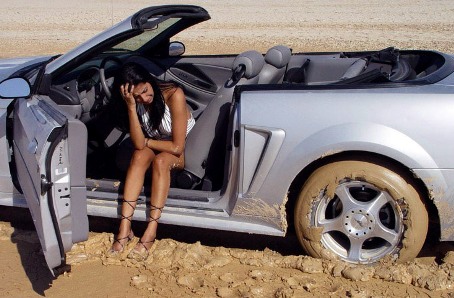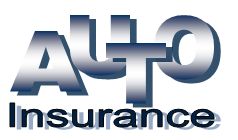What should I do at the scene of an car accident?
Answer:
1. first check to make sure that everyone is all right -- call for an ambulance or the paramedics if needed
2. for most accidents you should call a police officer
3. exchange information with the other drivers
a. Name
b. Address
c. Telephone number
d. Insurance company/insurance agent
4. call your insurance agent as soon as possible.
 If you have an accident you should:
If you have an accident you should:
If I have an auto accident, do I have to stop?
Yes. Any driver involved in an accident must stop immediately if a person is injured or killed or if an attended vehicle or other attended property is damaged. As soon as you are in an accident, try to stop as close to the scene of the car accident as possible without putting yourself or somebody else in danger (assuming your vehicle is still capable of driving) and activate your emergency lights. Law says you must stop—whether the car accident involves a pedestrian, a moving car, a parked car or someone’s property. If you drive away, you can be charged with hit and run even if the car accident was not your fault.
You must also exchange information with the other driver—your name and driver’s license number, the vehicle identification number of the car you are driving, the name and address of the car’s owner, the name and address of your car insurance company and your car insurance policy number (or other evidence of financial responsibility, such as a bond posted with the Department of Motor Vehicles).
Hit-and-run penalties are severe. Depending on the damage or injuries, you may be fined, sent to jail or both. You also could lose your driver’s license.
If you hit a parked car or other property, try to find the owner or driver. If you cannot, the law says you may drive away only after you leave behind, in a conspicuous place, your name, address and an explanation of the car accident, and the name and address of your car’s owner (if other than yourself).
You also must notify the local police either by telephone or in person as soon as possible, call the police if the car accident caused a death or injury. An officer who comes to the scene of the car accident will conduct an investigation. If an officer doesn’t show up, you must make a written report on a form available at the police department as soon as possible.
What should I do if someone is injured?
The law requires you to give reasonable assistance to anyone who is injured. For example, you may need to call an ambulance, take the injured person to a doctor or hospital, or give first aid—if you know how.
According to the law – you are obliged to give the possible reasonable help to the victim: to cause an ambulance, to bring the injured person to the doctor or the nearest hospital, or to give first aid – in the event that you know as.
To prevent additional collisions, you should do the utmost to warn other motorists that there was an car accident. Placing flares on the road (only if there are no flammable fluids), turning on your car’s hazard lights and lifting the engine hood are usually good ways to warn others on the road.
How can I get help?
If you have a possibility to reach to phone - call 911. Accurately and precisely explain to the operator of service a situation and inform it an exact site of car accident. Do not forget to inform on that is whether the ambulance or a fire-engine is necessary. You should not hang up a tube until while the operator will not resolve to you.
Also, you can stop the fleeting car and ask the driver that that has given you the help. Cellular telephone presence in the car of the stopped driver will help to make faster an extreme call on a place.
What information should I gather at the car accident scene?
Since many records now are confidential under the law, you may not be able to obtain the information that you want from the Department of Motor Vehicles (DMV). So be sure to get as much correct and complete information as you can at the scene of the auto accident.
You and the other driver should show each other your driver’s licenses and vehicle registrations. Then you should write down:
1.) The other driver’s name, address, date of birth, telephone number, driver’s license number and expiration date, and car insurance company.
2.) The other car’s make, year, model, license plate number and expiration date, and vehicle identification number.
3.) The names, addresses, telephone numbers and car insurance companies of the other car’s legal and registered owners—if the driver does not own the car.
4.) The names, addresses, dates of birth, driver’s license numbers and telephone numbers of any passengers in the other car.
5.) The names, addresses and telephone numbers of any witnesses to the car accident. Ask them to stay to talk to the police. If they insist on leaving, ask them to tell you what they saw and write everything down.
6.) Try to identify people at the accident scene, even if they will not give their names.
7.) The name and badge number of the law officer who comes to the car accident scene.
8.) A simple diagram of the accident. Draw the positions of both cars before, during and after the car accident.
If I think the accident was my fault, should I say so?
Do not volunteer any information about who was to blame for the car accident. You may think you are in the wrong and then learn that the other driver is as much or more to blame than you are. You should first talk to your auto insurance agent, your lawyer or both. Anything you say to the police or the other driver can be used against you later.
Do not agree to pay for damages or sign any paper except a traffic ticket until you check with your car insurance company or lawyer. However, be sure to cooperate with the police officer investigating the case. But, stick to the facts.
What if I get a ticket?
You can easy sign it as the ticket at all does not speak and does not confirm your fault or innocence. If you refuse to sign the ticket in that case the policeman has the right to arrest you.
After you have signed the ticket, you can demand to speak with your lawyer before you pay the penalty or plead guilty to charges. If you plead guilty, you may hurt your chances of collecting damages from the other driver later. Or, you may help the other driver to collect damages from you.
Do I need auto insurance?
Compulsory financial responsibility law requires that every driver and vehicle owner have car insurance or other proof of financial responsibility.
You must carry written evidence of financial responsibility whenever you drive. For most of us, that means evidence of an automobile insurance policy. Often, that evidence takes the form of an car insurance card issued by your car insurance company.
However, if the name of the insurer and the car insurance policy number are contained in the DMV’s vehicle registration records, you may simply write your automobile insurance policy number and the name of the car insurance company on the back of your vehicle registration.
If you don’t have this evidence to show to a police officer after a citation stop or an car accident, you may have to pay a fine and a court may impound your vehicle. If you have an car accident and can’t show proof of financial responsibility, you may also lose your driver’s license for up to four (4) years.
Who pays if I'm injured or my car is damaged?
That depends on who is at fault, whether you and the other driver have auto insurance and what kind of auto insurance you have. There are two major types of automobile insurance: liability and collision.
Liability.
If you are to blame for an accident, your liability insurance will pay the other driver for property damage and personal injuries up to your auto insurance policy’s limits.
If you are not at fault, the other driver’s liability auto insurance pays for your car damage and/or personal injuries up to the car insurance policy limits of the other driver’s auto insurance policy.
If you loan your car to someone who has an accident, your car insurance can also help pay for the damages.
Collision.
No matter who is at fault, your collision insurance pays for damages to your car (not your medical expenses), minus the auto insurance policy deductible.
What should I do if the other driver does not have insurance?
If the other driver caused the accident and is not insured, your own auto insurance policy can pay for your personal injuries—if you have uninsured motorist or medical payments coverage, up to the specified limits as provided in your auto insurance policy.
If the other driver’s insurance is not enough to pay for all of your damages, your own car insurance may pay the difference—if you have underinsured motorist coverage.
If you do not have these kinds of insurance or if your damages are more than the auto insurance policy’s limit, you can sue the other driver. However, even if you win the case, you cannot be sure that the other driver has the money to pay.
If you have collision insurance, it will usually pay for the damage to your car, minus your deductible, no matter who is at fault.
What If I've hit an Unattended Vehicle?
You must make a reasonable effort to find the owner of the vehicle or other property and give this person your name, address, driver's license number, and vehicle registration number. If you cannot find the owner of the vehicle, you are required to leave a note with that information in a place that will easily be found by them at a later date. Even after you have left a note, you are still required to notify local law enforcement of the incident within 24 hours in writing unless injuries you have sustained prevent you from doing so. Failure to do so can also result in charges being filed against you.
